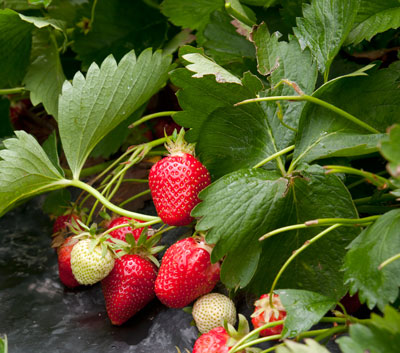Commercial Fruit Production
Arkansas's Discovery Farms
Arkansas's Discovery Farms are collaborative, on-farm research sites designed to provide real-world demonstrations of sustainable and improved agricultural practices. Established in partnership with local farmers, these farms focus on developing better irrigation methods for specialty crops and promoting sustainable practices.
Through hands-on demonstrations, the farms aim to support producers and agricultural professionals in adopting more efficient, research-backed techniques to improve their operations.
Explore our farms!


